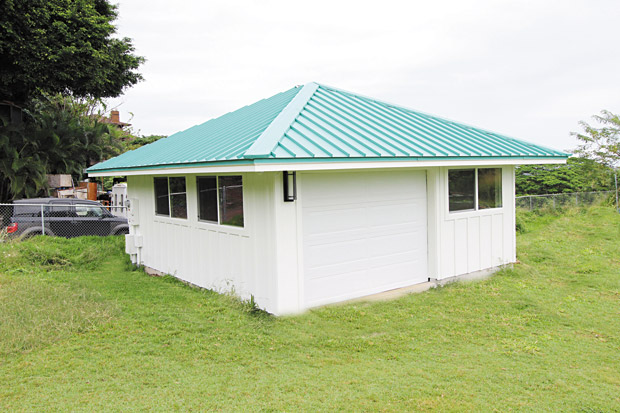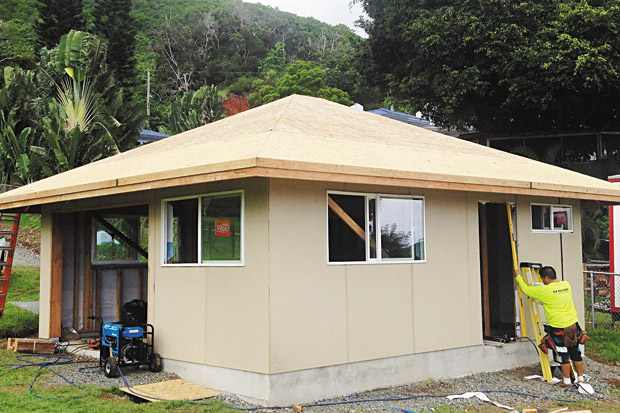Maximizing space with ADUs

AFTER
Last September, Mayor Kirk Caldwell signed into law the Accessory Dwelling Unit (ADU) Ordinance 15-41, which allows homeowners to build a second dwelling unit on their property. Proposed ADUs have to meet specific zoning criteria, public safety and utility minimum standards and specific design requirements for approval. Its purpose is to increase affordable rental units and help alleviate the severe housing shortage that is causing median housing costs to rise to historic levels.
While city officials are hopeful the ordinance could eventually help to create up to 20,000 new living units, nearly four months after the ADU ordinance passed, only one ADU permit had been issued; by mid-January, approximately 380 ADU applications had been submitted and roughly 55 of the applications had been approved.
Why such a slow start for ADUs?
“Much of it has to do with the how backed up DPP (Department of Planning and Permitting) has been over the last couple of years,” said Keith Kilburn, senior architectural designer with Graham Builders. “Homeowners first have to submit an ADU pre-check form to determine whether or not an ADU will even be allowed. That step alone can take a month or so.

BEFORE
So far, many ADU applications have been denied for reasons homeowners did not expect. For example, the subject property requires direct access to a minimum paved roadway width of 20 feet or 18 feet if the roadway serves no more than six lots. Another common disqualifier is inadequate wastewater capacity, or the closest fire hydrant exceeds the maximum required distance.
“Utility hook-up fees and energy-efficiency codes have also caught many applicants by surprise,” said Evan Fujimoto, president of Graham Builders. “The City will view an approved
ADU as a second dwelling, so wastewater connection fees and water source and Board of Water Supply charges can come into the thousands,” added Fujimoto. “We’ve submitted four ADU pre-check forms to date; two were denied, one was approved and the fourth is pending. We’re hopeful we’ll be at least 50/50 on our applications.”
According to the City Real Property Assessment Division, ADUs also will be taxed as a separate dwelling rather than a part of the primary dwelling, even though an ADU cannot be sold. Owners are required to record a covenant stipulating that the lot or any portion thereof will not be submitted to a condominium property regime (CPR) to separate the ownership of the ADU from the ownership of the primary dwelling unit.
Graham Builders is in its 25th year of business as one of Hawaii’s leading design-build general contractors. To learn more about ADUs or how the company can help you build your dream home or to expand and renovate your existing home, attend the next “Building Your Home for Life” seminar Feb. 20. Seminars are free, but reservations are required. To register, visit grahambuilders.com or call 593-2808.
GRAHAM BUILDERS
contact // 593-2808
web // grahambuilders.com